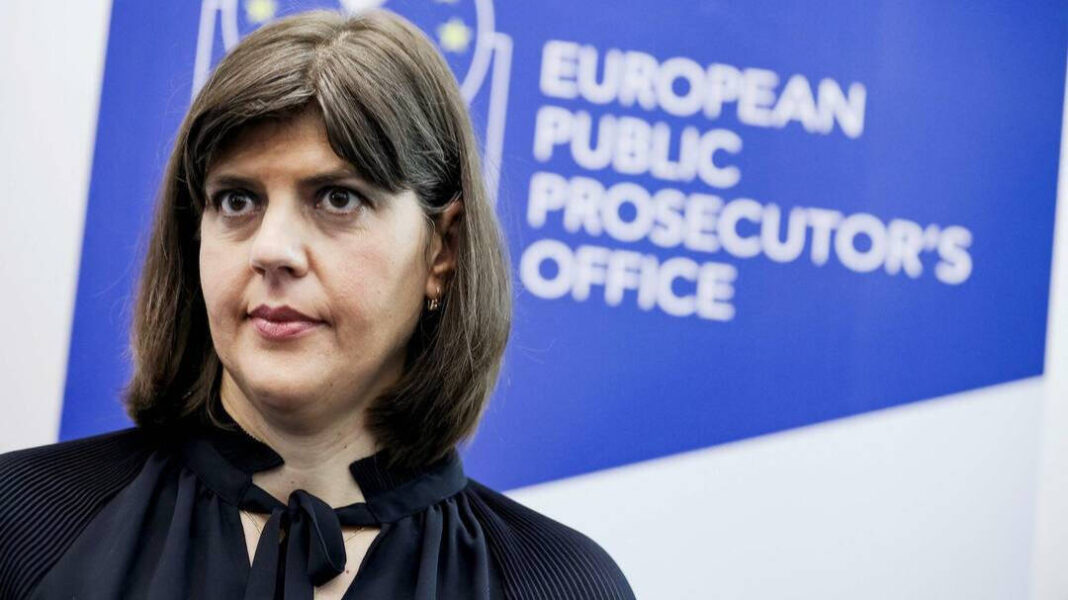From Álvaro Peñas
During the official inauguration of the new European Public Prosecutor’s Office (EPPO), which took place in Luxembourg, the Vice-President of the European Commission and Commissioner for Values and Transparency, Věra Jourová, commented to several journalists that the judgment of the Court of Justice of the European Union (ECJ) was on the action Hungary and Poland will come to the rule of law conditionality mechanism in late summer or early autumn. The Commissioner has repeatedly taken the outcome of the judgment against the plaintiffs for granted, which would mean applying this conditionality mechanism and could lead to a freeze on the funds they receive from the EU. For Jourová.
Hungary, Poland, Denmark, Sweden and Ireland are the only countries that have chosen not to join EPPO, an organization that will oversee investigations into possible misuse of EU funds. EU Justice Commissioner Didier Reynders agreed with Jourovás’ criticism, noting that these countries have an obligation to get involved and work with EPPO as protecting the budget is a joint effort. The tone of the EU towards Hungary and Poland is that of a permanent threat. The truth is that neither country has so far consulted European investigative bodies such as the European Anti-Fraud Office about financial investigations into the use of European funds, but Jourová’s new remarks.
The EPPO’s first chief prosecutor is the Romanian lawyer Laura Codruta Kövesi, who was appointed European General Prosecutor in October 2019. At the inauguration, Kövesi stated that the EPPO was “the EU’s first instrument to protect the rule of law”. As head of the Romanian National Anti-Corruption Agency (DNA), Kövesi launched extensive criminal prosecutions against Romanian politics, including mass charges. In 17 months she opened three times as many cases as in the previous three years, including 1,138 people, including 24 mayors, five MPs, two former ministers and a former prime minister. Many of these charges failed in court and Kövesi was criticized by her critics, especially the Social Democrats, who bore the brunt of their activities, accused of conducting a political witch hunt. Her actions resulted in her being replaced as Head of the Anti-Corruption Bureau in July 2018, with support from the Open Sociery Society at the time, which spoke out against her removal. This was hardly surprising given that the Soros network NGOs treated the DNA as their political party. A year later, Kövesi was elected European Attorney General. In addition, the European Court of Human Rights (ECHR), an institution compromised by the Puppinck report, upheld Kövesi’s lawsuit against Romania on May 5, 2020 for her dismissal as anti-corruption prosecutor. In its decision, the ECHR took into account “the opinions of the Open Society Justice Initiative, the Human Rights Institute of the International Bar Association and the Helsinki Foundation for Human Rights, which were allowed to intervene by the President of the Section”. That is, three NGOs from the Soros network.

The connection between Kövesi and Soros has not gone unnoticed in Hungary. In July 2020, the President of the Hungarian Parliament, László Kövér, accused her of being a “foreign agent” and compared her methods with those of the communist dictator Ceausescu. Kövér said the Romanian prosecutor made a name for herself by launching “dozens of political trials against those belonging to the other political camp. Among other things against Hungarian mayors (in Transylvania). They were charged in a totally unjust way, taken away from their families at dawn by a police unit, and so on. During this time, hundreds of thousands of conversations were bugged through the collaboration between the DNA and the Securitate.
The media were quick to point out that Hungary and Poland (the other countries are not mentioned) are against the new European Public Prosecutor’s Office because they are at the top of the list of anti-corruption watchdogs from Transparency International, the global coalition against corruption, stand, an NGO led by Michiel van Hulten and which mentions the Open Society Institute (FOSI), the Open Society Institute, the Development Foundation, the Foundation to Promote Open Society and the Open Society Initiative for Europe in its list of donors . Again the long arm of the Soros network, which has its hands on the judge, the prosecutor and the “independent” body that files the complaint. Hungary and Poland will certainly not work together on a project
This article was first published by EL CORREO DE ESPAÑA , our partner in the EUROPEAN MEDIA COOPERATION.

